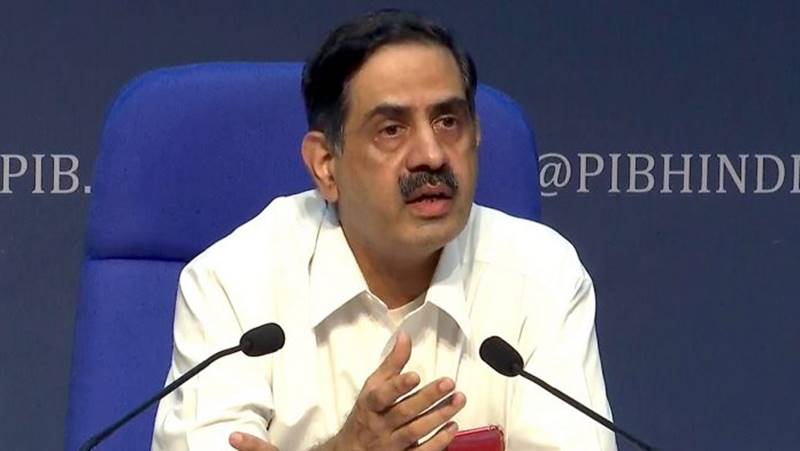Explained: What is the D2 variant of dengue that has wreaked havoc in Uttar Pradesh’s Firozabad
Known to be deadlier than all other strains of dengue, the D2 or DENV 2 virus has been found to be the cause behind the deaths in Firozabad, a majority of which are of young children. Read on to know more about its fatality.


The DHF is the leading cause of deaths in dengue patients and internal bleeding and damage to vital organs are common complications in such conditions. Photo by Brijendra Dubey
After more than two weeks of the ‘mystery fever’ ravaging the districts in western Uttar Pradesh with Firozabad reporting the biggest outbreak with at least 57 deaths, the Indian Council of Medical Research (ICMR), which was tasked with investigating the outbreak revealed yesterday that it is caused by the ‘D2’ variant of dengue.
Balram Bhargava, the director-general of the ICMR told the press in a media briefing yesterday that most of the deaths in Firozabad, Agra and Mathura were due to the type 2 strain of the dengue virus.
“Deaths in Mathura, Agra and Firozabad are due to dengue fever caused by D2 strain, which can cause haemorrhaging (internal bleeding) that could be fatal. Mosquito breeding should be checked urgently in the affected areas,” Bhargava said in a press briefing.

Types of dengue variants
The virus responsible for causing dengue, is called dengue virus and is denoted as DENV. There are four DENV serotypes and an infection by each of these ensures life long immunity against that particular serotype. It also means that it is possible to be infected four times by the virus. The four serotypes (also known as variants or strains) are: DENV 1, DENV 2, DENV 3 and DENV 4. Of these, DENV 2 is considered to be the most fatal.
Also Read: After dengue outbreak in Firozabad, malaria raises its ugly head in rural Uttar Pradesh
The disease is caused by the Aedes species (Aedes aegypti or Aedes albopictus) of mosquitoes which act as a carrier or the vector of the virus.

How deadly is the D2 variant or DENV 2?
According to the pre-print of a research titled ‘Emergence of a Dengue virus serotype 2 causing the largest ever dengue epidemic in Sri Lanka’ conducted by Sri Lankan researchers and published in bioRxiv (pronounced bio-archive) — an online archive of science journals — on May 23, 2018, the risk of developing dengue haemorrhagic fever (DHF) was significantly higher in patients infected with DENV2 (54.8 per cent) when compared to DENV1 (32.9 per cent).
The DHF is the leading cause of deaths in dengue patients and internal bleeding and damage to vital organs are common complications in such conditions.
Also Read: Firozabad echoes with the wails of grieving mothers whose children succumbed to a mystery fever
Meanwhile, the World Health Organization (WHO), in its fact sheet on dengue mentions that the number of dengue cases reported to WHO have increased over eight fold over the last two decades, from 505,430 cases in 2000, to over 2.4 million in 2010, and 5.2 million in 2019. Also, global reported deaths between the year 2000 and 2015 increased from 960 to 4,032.
D2 variant of dengue found in multiple states
The D2 variant which is more infectious and deadly than other three variants, has been found to be the leading cause of infections in Gujarat.
According to a serological survey conducted by the Pune-based National Institute of Virology in August, in 60 districts across the country the D2 variant was the most common dengue variant in Gujarat, Odisha, Uttar Pradesh, Rajasthan, Tamil Nadu, Telangana, Puducherry and Telangana.
“Do not take any fever lightly. Be it malaria, dengue or Covid. Our focus should not move from Covid, but dengue can be deadly too and there is no vaccination. It is also difficult to tell who is more susceptible to dengue. And then there is no vaccination,” NITI Aayog chairperson VK Paul said in a press briefing yesterday.
Treatment of dengue
As of now there are no vaccines or specific protocol for treatment of dengue patients and doctors have to rely on the management of symptoms that are associated with the disease.
“Patients should seek medical advice, rest and drink plenty of fluids. Paracetamol can be taken to bring down fever and reduce joint pains. However, aspirin or ibuprofen should not be taken since they can increase the risk of bleeding,” WHO advises in its remarks on dengue.
It also points out that proper medical care and early detection can keep case-fatality rates below 1 per cent, but alos mentions that the ‘the overall experience remains very discomforting and unpleasant’ for the patients.

